‘A lack of transparency creates distrust and a deep sense of insecurity ‘
Dali Lama
Leading in Times of Crisis – A study completed by Deloitte indicated that millennials in the US reported a gap in their leadership skills. Interestingly, the skill gaps emerging are in the areas of soft skills and communication. The current climate is a testing time for leaders, and never before is there such a great need for leaders, to possess an awareness of the nuances at play in the environment, and be connected to their staff.
The Importance of Self-Awareness
During the current crisis, there is a greater need for leaders to practise self -awareness, tune into their emotional disturbances and have an acute sense of the need to pause, even amid urgent demands.
To lead, in a time of crisis, in addition to technical and operational competencies, a high degree of emotional intelligence is required. Daniel Goldman describes emotional intelligence as the capacity for recognising our feelings and those of others, for motivating ourselves and for managing the emotions well in ourselves and our relationships. Awareness for self and others is a crucial component of emotional intelligence.
Self-awareness contributes to emotional intelligence which is one of the outputs from a regular mindfulness practice. Mindfulness is non-judgmental awareness; however, like training to get physically fit, we need to practice it to enhance our self-awareness skills.
Leaders who tune into their emotional disturbances are self-aware and can pause rather than react, and manage more effectively, particularly during a crisis. As a leader, ensuring staff receive your core message is dependent on possessing a high level of emotional control during this crisis.
Emotions are contagious, and it is important to acknowledge with employees these are challenging times, and recognise the unpleasantness felt, but do not allow it to unhinge you. Practising non-judgmental awareness of your emotions enables you to accept them and skilfully lead. Acknowledging the difficulties frees you from them driving your behaviours. Practising non-judgmental awareness of emotions allows you to make decisions with clarity.
Having emotional awareness ensures you as a leader are grounded, and heightens your focus on the end game of leading in times of crisis.
The end game in the current pandemic for our country is to flatten the curve. Current actions by An Taoiseach, are being embraced by the population as a whole. Leo Vradadkar T.D.’s ability to demonstrate a high degree of emotional control which conveys clarity and confidence about his decisions is helping to secure buy-in and mange this crisis with authority.
Employee Emotional Wellbeing
Additionally, it is essential in times of crisis for a leader to have social awareness, which is an understanding of employees’ emotional wellbeing. Social awareness is your ability to accurately tune in and understand what is really going on with others. Social awareness helps you pick up critical information and not get drawn into stories. Listening and observation skills help develop social awareness.
Being socially mindful is about acknowledging employees will feel fear, worry, anxiousness, even anger. An emotionally tuned in leader understands the nuances of skillfully leading when strong emotions exist amongst employees to ensure the best outcomes. This does not mean side stepping issues. It is about acknowledging the difficulties, appreciating the challenges, and navigating employees in turbulent times.
Do not undervalue the action of asking employees how they feel. Encourage discussion on this. Encourage employees to take breaks, and problem solve through collaboration. Ask employees for their ideas; often, the best innovative thinking comes when we are under pressure.
Promoting initiatives that nurture self-care and resilience is even more crucial now. In times of crisis, the mind driven by agitated thinking tends to go into overdrive. There is a tendency to move mindlessly from one task to the other. Friedman and Rosenman, eminent cardiologists, referred to this as ‘hurried sickness’ which leads to more stress and burn out.
Encouraging a mindful minute before each meeting, promoting desk stretches throughout the working day, and practising short mindfulness exercises can starve of ‘hurried sickness.’
Communication Communication Communication
As part of my work with the Ibec KeepWell Mark, organisations that demonstrate competency in embedding a wellness culture have robust communication processes in place. It is even more critical in times of crisis to listen to staff, to promote collaboration and cultivate a safe environment where people free safe to speak. Daily check-ins and regular town hall meetings create clarity, eliminates confusions, and reiterates the sense of connection, which is vital in times of social distancing and self isolation. Communicating information is timely and transparent fosters trust.
Given the new move to virtual meetings, developing protocols on SMART team meetings provide a framework from which all staff know the expectations around virtual communication. Strict time management is a priority, encouraging participation from all by using different communication tools like polling or chat features and ensuring good meeting openings and closings help to enhance the virtual communication experience. Regular communication ensures everyone is working from the same schedule towards the same goal.
Selfcare
During a crisis, time is precious, due to the high stream of competing demands and high velocity of data flowing in all directions. Now is the time to be more selective about choosing only validated communication channels, delegating wisely and carving out space for self-care so that you are fully present to the arrows flung at the business.
Mindful leaders who possesses high emotional intelligence, are tuned into their emotions and thoughts, have resilience to skillfully navigate through a crisis by making decisions with clarity. Being present equips leaders with an openness to take in all the nuances in the environment and not get tempted into a spiral of reactive behaviours.
And as we progress through this pandemic, ensuring information from our leaders, managers and An Taoiseach, is accurate and transparent will be critical to maintaining the people’s trust.
If interested in learning more about enhancing emotional intelligence and practising self-care, I will be exploring these and more related subjects in Ibec’s Leading in Times of Crisis online course Thursday 23rd April. The course is experientially led and provides a space for leaders to collaborate and assess how they are currently leading. For more information click here


